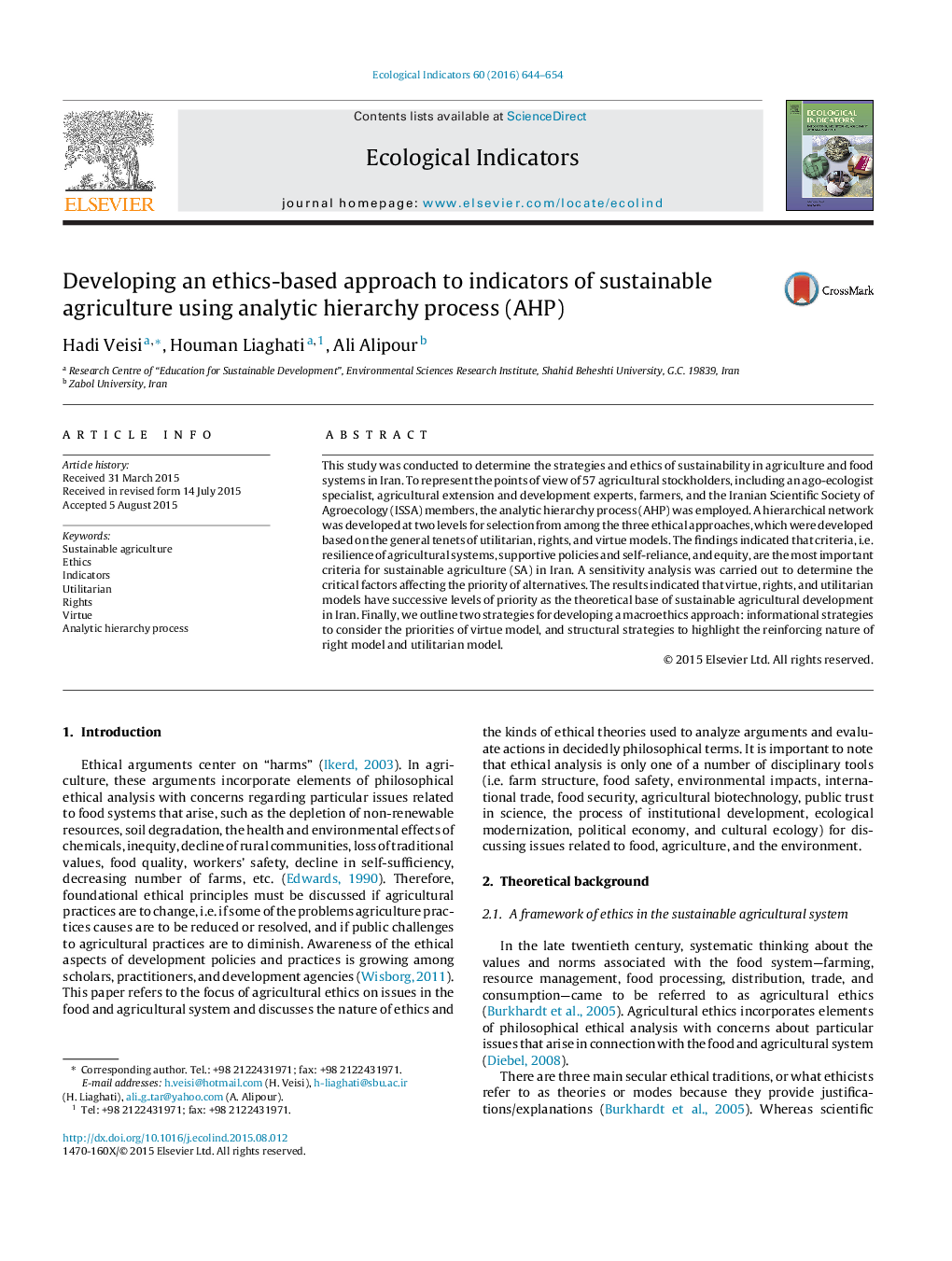| Article ID | Journal | Published Year | Pages | File Type |
|---|---|---|---|---|
| 6294124 | Ecological Indicators | 2016 | 11 Pages |
Abstract
This study was conducted to determine the strategies and ethics of sustainability in agriculture and food systems in Iran. To represent the points of view of 57 agricultural stockholders, including an ago-ecologist specialist, agricultural extension and development experts, farmers, and the Iranian Scientific Society of Agroecology (ISSA) members, the analytic hierarchy process (AHP) was employed. A hierarchical network was developed at two levels for selection from among the three ethical approaches, which were developed based on the general tenets of utilitarian, rights, and virtue models. The findings indicated that criteria, i.e. resilience of agricultural systems, supportive policies and self-reliance, and equity, are the most important criteria for sustainable agriculture (SA) in Iran. A sensitivity analysis was carried out to determine the critical factors affecting the priority of alternatives. The results indicated that virtue, rights, and utilitarian models have successive levels of priority as the theoretical base of sustainable agricultural development in Iran. Finally, we outline two strategies for developing a macroethics approach: informational strategies to consider the priorities of virtue model, and structural strategies to highlight the reinforcing nature of right model and utilitarian model.
Related Topics
Life Sciences
Agricultural and Biological Sciences
Ecology, Evolution, Behavior and Systematics
Authors
Hadi Veisi, Houman Liaghati, Ali Alipour,
